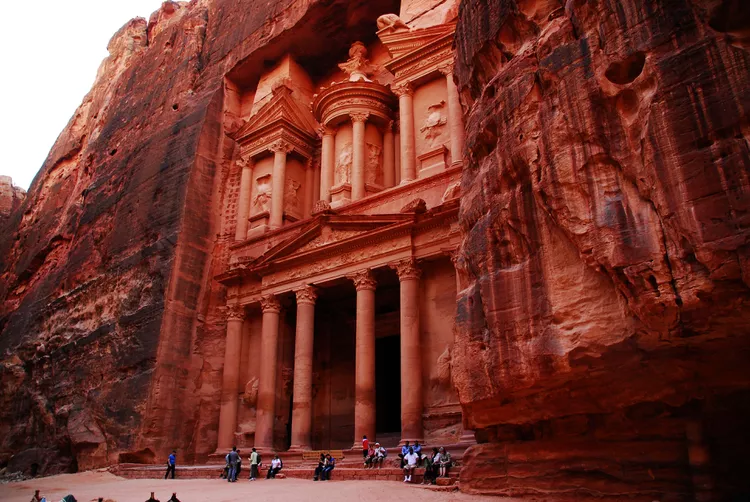Summary
Introduction to the New Seven Wonders
The results of the New Seven Wonders of the World campaign were announced in Lisbon, Portugal on July 7, 2007. The campaign aimed to select the new seven man-made wonders of the world, starting in September 1999, where people across the globe nominated their favorites until December 2005. An international panel of judges revealed the twenty-one world-class finalists on January 1, 2006. These 21 finalists were showcased on the New7Wonders website, where over 100 million votes helped determine the seven winners. In total, more than 600 million votes were cast in selecting the New7Wonders of the World, the New7Wonders of Nature, and the New7Wonders of Cities.
For travelers, the significance of this list is twofold. Firstly, the campaign’s voting process drew a significant number of interested travelers to remarkable locations worldwide, some of which are iconic (like the Colosseum in Rome), while others are lesser-known (like Petra in Jordan or Chichen Itza in Mexico). Secondly, this list serves as an excellent resource in planning both land and cruise trips. Even though the list was announced over a decade ago, its relevance will endure for many years ahead.
Origins of the Seven Ancient Wonders of the World
The concept of the New Seven Wonders of the World was inspired by the Seven Ancient Wonders, a list created by Philon of Byzantium in 200 B.C. This list acted as a travel guide for his fellow Athenians, focusing on man-made sites located within the Mediterranean basin. Regrettably, only one of the original seven wonders remains today: the Pyramids of Egypt. The other six ancient wonders included the Lighthouse of Alexandria, the Temple of Artemis, the Statue of Zeus, the Colossus of Rhodes, the Hanging Gardens of Babylon, and the Mausoleum of Halicarnassus.
How to See the New Seven Wonders of the World
Almost all of the top 21 finalist sites are reachable via cruise ship or overnight land extensions. As such, cruising enthusiasts can utilize this list for travel planning in a manner akin to that of the ancient Athenians. Notable destinations include:
- The Great Wall of China, which can be explored through a combination land tour and a Yangtze River cruise or an ocean cruise that docks in Tianjin.
- Petra in Jordan can be accessed via a cruise to the Red Sea and the Middle East, with docking at Aqaba, Jordan. Many cruise ships repositioning between the Mediterranean and Asia include Petra as a stopover.
- The Statue of Christ Redeemer in Rio de Janeiro is part of South American cruises that stop in the city.
- Machu Picchu in Peru can be reached through pre- or post-cruise extensions from South American cruises embarking or debarking in Lima.
- Chichén Itzá in Mexico can be visited on full-day shore excursions from Progreso, Cancun, or Cozumel.
- The Colosseum in Rome is an excellent excursion opportunity when your Mediterranean cruise ship docks in Civitavecchia.
- The Taj Mahal in India is the most challenging of the New 7 Wonders to visit as it is not located near coastal areas; interested travelers must fly to Delhi and travel to Agra. Some Mumbai-based cruise ships offer day excursions to Agra, providing a convenient visit.
Other Finalist Nominees
While not all places made it to the top seven, many runners-up are just as intriguing for travelers:
- Alhambra in Granada, Spain
- Easter Island (Rapa Nui) Statues in the South Pacific Ocean
- Eiffel Tower in Paris
- Hagia Sophia in Istanbul
- Kiyomizu Temple in Japan
- Statue of Liberty in New York City
- Stonehenge in Great Britain
- Sydney Opera House in Australia
Most of these finalist nominees are accessible via day trips or shore excursions with the exception of Neuschwanstein Castle in Germany, Stonehenge in Great Britain, and Timbuktu in Mali.




